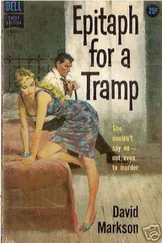One says practically because of Helen still having been rather more officially married to Menelaus, naturally.
But still, ten years being ten years in this case, too. So that undeniably Cassandra would have been delighted to renew the relationship.
Good morning, children and Cassandra. Guess what I have been thinking about. How would everybody like to take a little trip to Sparta, to visit Aunt Helen?
Oh let's, indeed! What an agreeable idea, Clytemnestra!
Will Uncle Menelaus be there too, Mommy?
Oops.
One had been forgetting that part, obviously.
Which is to say that after having fought an entire war to get his wife back, doubtless Menelaus would have been less than overjoyed at a sister of the man she had run off with turning up as a house guest.
When I say house, I should again be saying palace, of course.
Then again, what one next imagines is that doubtless Helen would have nagged a little, if necessary.
Oh, now darling, what possible harm can there be in letting her have a window or two, to lurk at?
Well, and most probably Cassandra would have brought gifts also, to smooth things over.
Trojans having been known for bearing gifts whenever they went anyplace in either case.
Actually, a cat would have been thoughtful. Even if a cat would have perhaps been more appropriate as a gift for Helen, rather than for Menelaus.
I cannot remember if there is anything in the Odyssey about Helen having a cat, however.
I say the Odyssey rather than the Iliad because of the Iliad having been over before Cassandra would have brought the animal, naturally.
But which again incidentally verifies that Gustave Flaubert was wrong about a woman having written that book, since surely a woman writing it would have thought to put Helen's cat in.
In fact what does happen to be put in is a dog, belonging to Odysseus.
Actually, the part about the dog is sad, it being the dog who is the first to recognize Odysseus when he returns to Ithaca after having been gone for ten extra years after Troy but then dies.
Ah, me. At least it would appear to have been some pages since the last time I did that.
Or at least noticed that I did.
What I meant was hardly that it is Odysseus who dies after returning to Ithaca, obviously. Obviously it is the dog who dies after recognizing him.
On the other hand Penelope does not recognize Odysseus at all, incidentally.
And which is surely additional proof about a woman not having written that part, either.
Well, surely if a wife had been dutifully avoiding any number of suitors for twenty full years while waiting for her husband to come home she ought to have recognized the husband when he got there.
Although it is the reverse of that statement which is more likely true, actually.
Which is to say that if a woman had written that part one sincerely doubts that the wife would have been avoiding the suitors for all of the twenty years to begin with.
I believe I have voiced such doubts about Penelope before, as a matter of fact.
After all.
Although come to think about it Penelope may very well have not spent the entire twenty years at Ithaca in either case.
Or surely would have at least gone so far as to visit Helen in Sparta herself, being a cousin.
This again being once that everybody had gotten home, naturally.
So that her own visit would have been basically to pick up some news, really.
Yes, yes, it is agreeable to see you again, too, Cousin Helen. But what I am more truthfully curious about is if anybody has heard anything of that husband of mine?
In fact it is this identical visit that her son Telemachus makes in the Odyssey itself, come to think about it, asking about his father.
And which is moreover the very scene in which Helen is shown to have that splendid radiant dignity.
But be that as it may, and even if she had no news whatsoever about Odysseus, Helen would have nonetheless had all sorts of other interesting items to report, unquestionably.
Well, and with Ithaca being an island, especially, so that anybody coming from there would have frequently been out of touch altogether.
Heavens above, Penelope. Do you honestly mean to tell me you have not even heard about my brother-in-law and the bathtub, yet?
Then again, for all one knows Penelope's visit might very well have coincided with Clytemnestra's own. Or certainly if Helen had ever invited the whole family at once, say, for some holiday or other, this could have easily been the case.
And in which instance most likely it would have been Clytemnestra who told Penelope about all that herself, then.
Even if she would have doubtless been discreet enough to leave out certain parts until Electra and Orestes had left the table, one imagines.
You don't mean it? And with a net, first? Now three cheers for you, Cousin Cly.
Oops.
One had been forgetting something here too, obviously.
Which is to say that doubtless Clytemnestra would not have uttered one solitary word until Menelaus had left the table, likewise.
If for that matter Menelaus would have ever let her sit down to begin with.
Menelaus having been Agamemnon's brother, of course.
Certain of these connections do get complicated enough to slip one's mind like this, unfortunately.
But it does remain a fact that the two brothers had married the two sisters.
And which would now appear to indicate that poor Electra and Orestes would not have gotten to visit their aunt that often after all.
Now see here, Helen. Winter solstice or not, certainly it is pushing things a bit far to expect me to allow that woman to set foot into this palace.
Oh, but Menelaus, darling.
Don't oh darling me. Not about this, you won't.
Even if none of this would have precluded Penelope's own visit in any way whatsoever, on the other hand.
So that what one is now naturally forced to suspect is that very likely it was the latter who gave Helen the cat, rather than Cassandra who did.
Well, and doubtless it would have been exactly like Penelope to think of an animal in any event, what with being so accustomed to a dog at home.
Although in fact she had a cat, too. Even if what I had almost been about to forget next is that there is actually a painting showing this, by somebody named Pintoricchio.
I am fairly certain I have mentioned the painting by Pintoricchio showing Penelope's cat.
I am even fairly certain I have mentioned that the cat in the painting is russet.
Even if as I have long since indicated russet is not a name one gives to a color.
I believe it may have been Rembrandt who first established this rule, actually, although in more recent years it was Willem de Kooning who most strongly insisted upon it.
Then again I may have also spoken about a cat of my own as having been russet in spite of this, now that I think back.
That would have only been carelessness, however.
And at any rate none of these cats is by any means to be confused with Rembrandt's own cat, which I bring up only because one might understandably think of Rembrandt's cat as having been russet as well, if for no other reason than russet being a color one automatically associates with Rembrandt.
Rembrandt's cat was actually gray. And had only one eye.
Which may very well be an explanation for why it always strolled right past those gold coins on the floor of his studio without so much as a glance, as a matter of fact, even though I had never stopped to think about that before.
Which is to say that doubtless it had generally passed the coins on the wrong side and so had not noticed them at all.
A good number of people also happened to disapprove of that same cat's name, by the way, which was Argus.
Читать дальше












